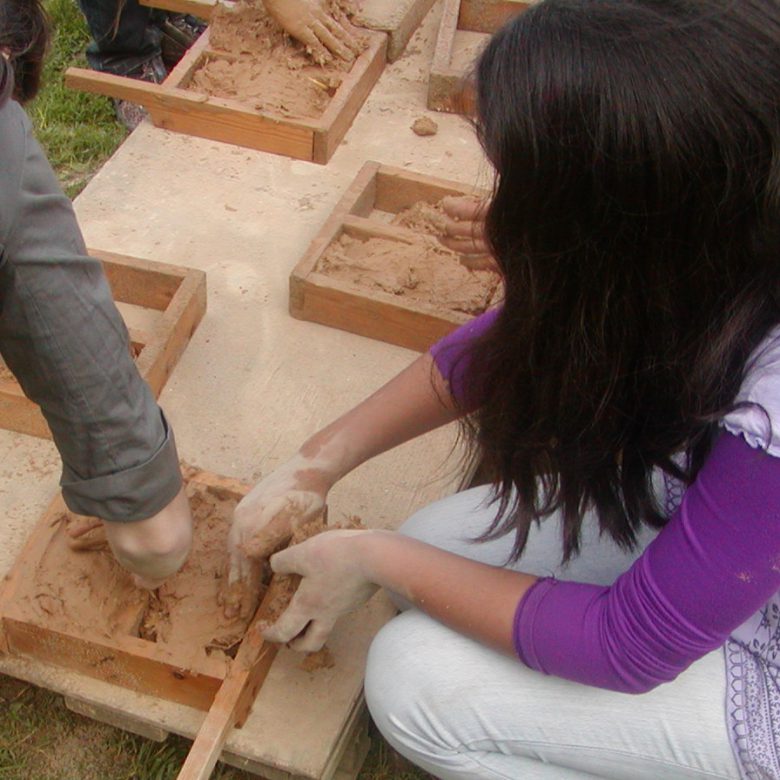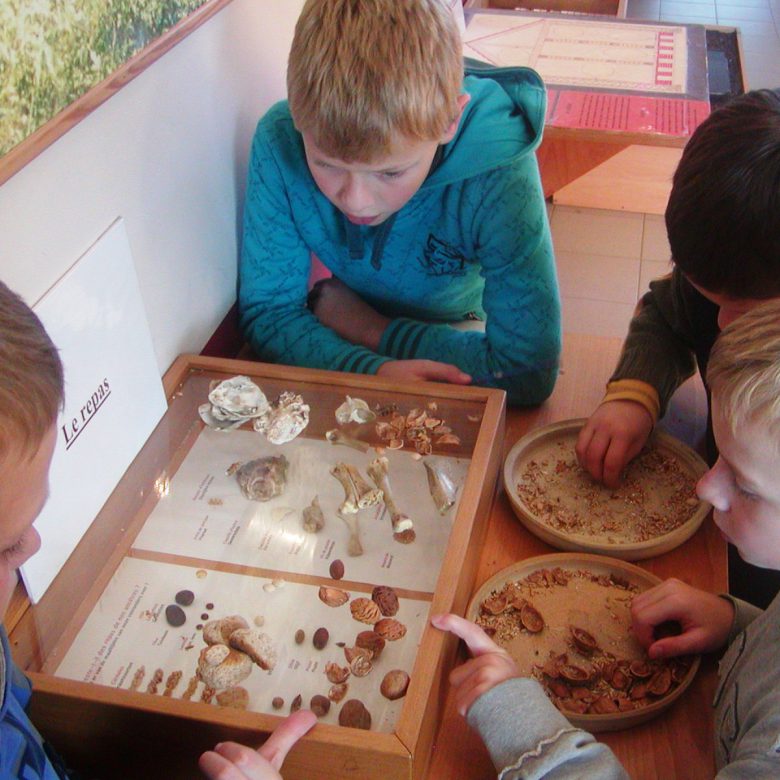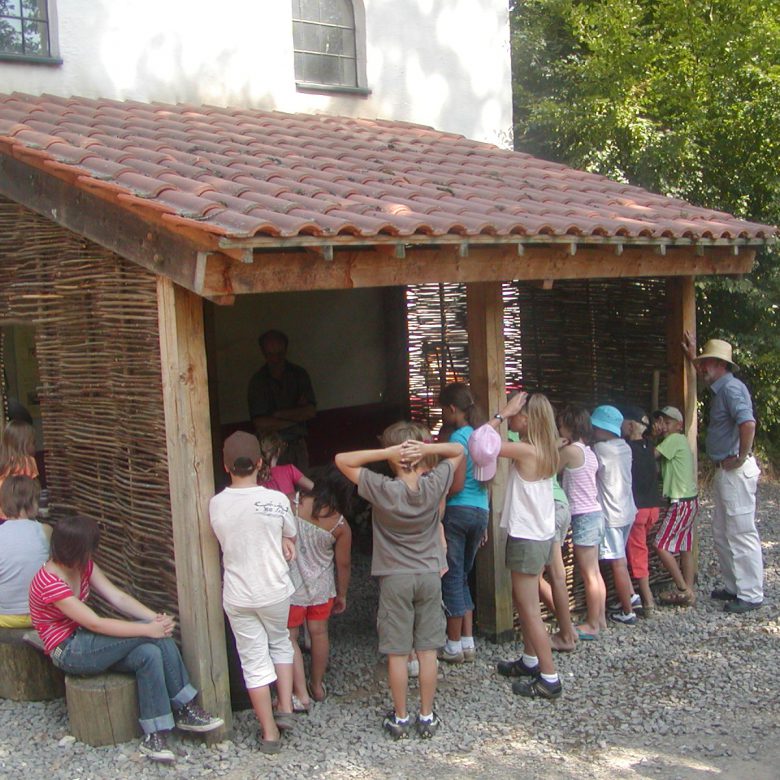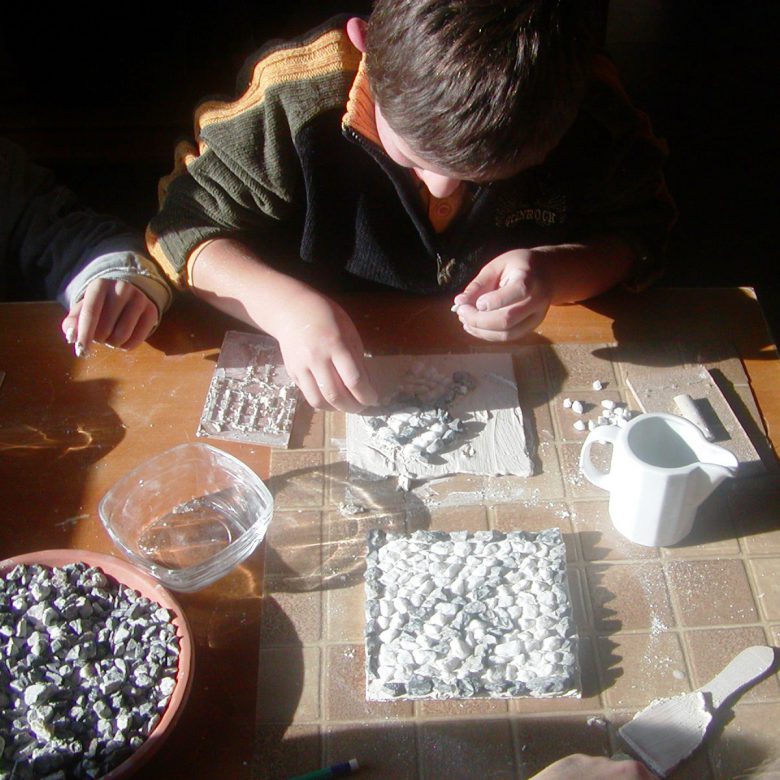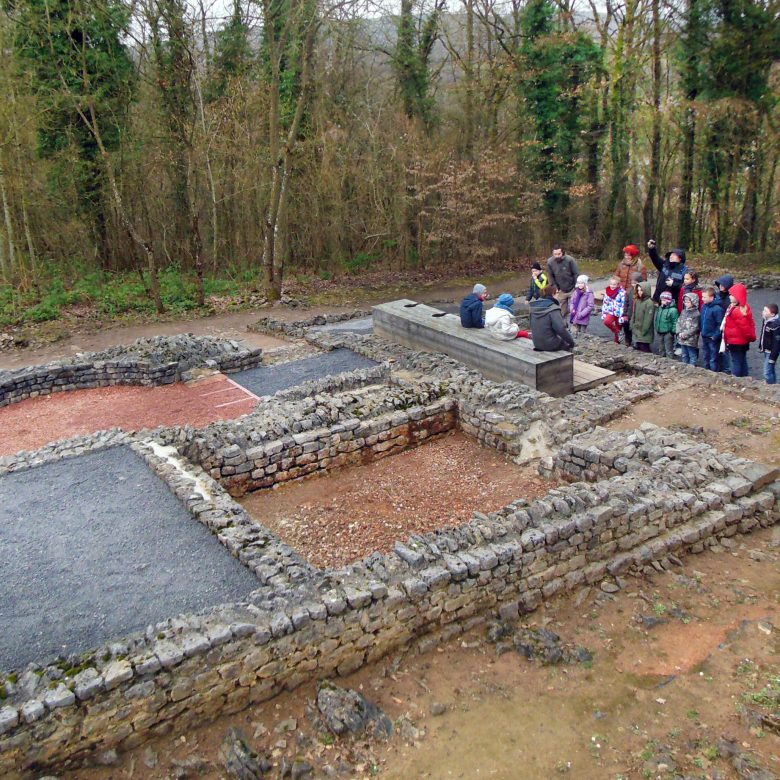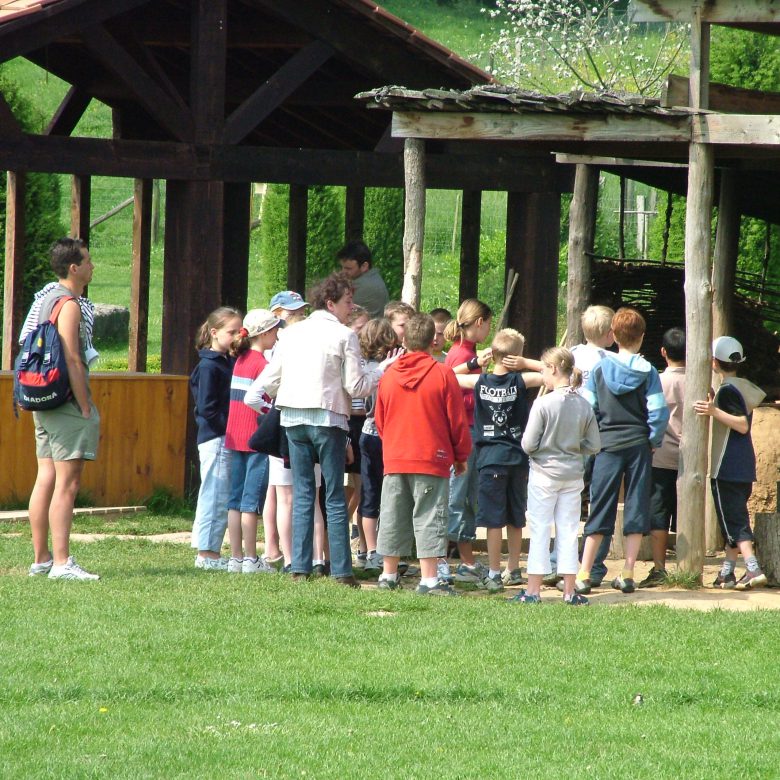Archaeo-discovery
The Archeopark of Malagne offers various entertainment programs for schools. These consist of a basic module of the age of the students and can be supplemented by additional activities to choose from .
Basic Module
The theoretical approach consist of : a historical introduction, a documentary film and the visit of the remains (main building and statements buildings). Experimental archeology is another highlight of Malagne. It consists of an approach to experiments that have been conducted in Malagne (low stove, reconstructed farm machinery, consolidation of the remains, etc.). Initiation into the work of the archaeologyand scientific methods through an entertaining medium.
During this half day, many concepts are addressed. Such as the Gallo-Roman history, the conservation of natural and archaeological heritage, experimental archeology, preservation of the plant and animal gene pool, the techniques of the archeology or geology of the site.
After your reservation we offer you a comprehensive teaching pack to prepare your visit.
Download an excerpt from the teaching file
Workshops
Each basic module can be complemented by additional activities to choose from. The addition of workshops to choose from is essential to understand the daily life of a Gallo-Roman villa. For this, Malagne’s team developed many equally fun and interesting workshops.
Gallo-Roman bread
During the workshop, the group discovers cereals grownin Malagne and their uses in the Gallo-Roman era. You will also be able to identify the necessary ingredients required to make bread (flour, water, salt, honey, yeast) and implement them (mixing and kneading turns) before baking themm in an mud-oven of Gallo-Roman type. The children participate in the bread baking activity and of course to its tasting.
Coil
Students will try coil pottery, a technique of climbing pottery with coils, that is to say small clay sausages rolled in the hands and superimposed on the base of the pot. How to superimpose will give a convex or concave shape. These coils are then smoothed with fingers to ensure the solidity of the whole. Students then perform a Gallo-Roman decor according to their creativity. When the work is completed, it must dry in the open air.
Clay and cob
This workshop gives pride in working the land as it was practiced in the Gallo-Roman era. It allows students to immerse themselves in a Gallo- Roman world by a manual activity and to learn about the earth building techniques. Students will each build a clay brick mixed with straw, by means of a wooden mold.
Appropriate clothing is required!
Gallo-roman games
Detour through simple or more elaborate games invented two thousand years. This workshop immerses students in the skin of young Gallo-Romans, making them discover their game world and the social role of the latter. Strategy games of chance, skill or mock the workshop offers classic games for all tastes. Students can compare their particular address in the Delta game and be strategic in the game of the 12 lines or even in the latroncule game, the game of Roman legionnaires. Fun guaranteed!
From 6 years
Smith
During the visit, students discover the ore reduction from button furnace and the refining of iron sponges. Then, in the reconstructed forge, they become an apprentice blacksmith. Then, in turn andunder the direction of a blacksmith, they pound a small iron bar heated red that will have the chance to become, in their hands : a stick, a bracelet or a Gallo-Roman lighter !
The smith workshop allows students to experience the third stage of iron working (forging), to become familiar with the tools of the blacksmith but also to discover some items, including tools, cigarette lighters, a helmet, a sword and a coat of mail.
Mosaic
Students discover this ancient technique with different examples. They prepare their support and realize a small two-color mosaic stones (15 x15 cm). They will be based on a model proposed or give free rein to their imagination.
Do not panic, the plaster leaves when washed !
Basket weaving
Educational objectives go to the discovery of the possibilities offered by nature of the craftsmanship of the awareness of ancient know-how.
After reviewing some examples of basket weaving from the Gallo-Roman period, the different materials used and the different techniques, students will have the opportunity to do a small job of basket weaving using willow and raffia. They will exercise their ability by opening to an omnipresent craft in the life of our ancestors.
Seed-sowing techniques
Thanks to a visit of gardens, students awaken their senses by discovering Gallo-Roman plant species. They will be able to see the diversity of plant uses of the time and understand their development cycle. Then, they will realize two sows with seeds of their choice, among a selection of Gallo-roman plants. In case of bad weather or in winter, the visit of the garden can be replaced by a game on the Gallo-roman plants followed by a tasting of herbal tea.
This workshop is available from March to July.
Rope-making
During this workshop, students can become aware of the importance of the rope in the Gallo- Roman times and understand the different materials used, whether they have a plant or an animal origin. They then initiate the manufacture of a cord by twisting hemp fibers. The class also build a long rope with the help of a stringing machine.
Strategy game (Strategix)
Strategix is a board game created by Malagne to have fun with multiple information received during the visit
To win their freedom, slaves must circulate in a villa and gather various resources while answering various questions.
Beware of the legionnaires lurking in the area !
Jewels
This workshop highlights the variety of used materials, manufacturing techniques and the usefulness and significance of antique jewelry.
Students have the opportunity to make jewelry with pliers and stretched metal by taking insipiration of historical patterns and the spiral of Triskel, a celtic pattern with three branches.
Abaque
This workshop is organized around two main parts. The first part is devoted to reading and writing Roman numerals. Students learn and / or develop their skills by doing small exercises with the whole group.
The second part presents the abacus and itsuse. Additions and / or subtractions are presented to students. Using individual wooden abacus, they put each number and, whern necessary, simplify to obtain the calculation result. The correction is made in community. This activity is a fun way to teach students to love to calculate.
Archery
This workshop will explore the archery in ancient Gallo-Roman times: the equipment used and the shooting technique. The first step is to discover the handling of this material in order to ensure good practice safely. Then, with the help of an archer, students can fire at a target 10 meters away. Who will reach the target center first?
Attention, this workshop can not be done in case of unfavorable weather conditions.
DYE
Currently unavailable
First, the workshop gives an overview of the Gallo-roman clothes and presents different textile fibers and colouring matters. Then, students can try to experiment dye of wool sample. This one is immersed in a bath of dyestuffs from the same plant subject to different mordants, to observe the diversity of results. Finally, the participants will associate samples of the wool. These samples were dyed with their mother plant and students can do some conclusions about the obtained colors.
Antique perfumes
Students will discover not only the ingredients used and their origin, but also the different manufacturing processes and containers used.
They will have to make their own beeswax ointment from almond oil and an aromatic substance. They will grate wax, melt it in a double boiler, add almond oil and lavender. Each student leaves with a small jar of ointment !

